Intelligent Design (I.D. I)
 |
| William A. Dembski's Intelligent Design |
Along with Michael Behe, Dembski is one of the two best-known proponents of I.D.'s supposedly scientific criticism of Darwin's theory of evolution: that it willfully ignores evidence of design in this planet's biosphere.
I have just begun reading the book, and I intend to comment freely as I go along. My first comment has to do with what I take to be Dembski's central tenet. He says evidence of design in our world should be construed as a sign from God, with all that word implies.
As such, it has to be both complex and specified, or it would be ambiguous at best. An example given by Behe in his introduction to the book is that Scrabble tiles "accidentally" forming the sequence AN would be insufficiently complex to be a sign, while NDEIRUABFDMOJHRINKE, matching no recognizable pattern, would be insufficiently specified. But METHINKSITISLIKEAWEASEL is both sufficiently complex and sufficiently specific, and therefore improbable enough, by pure chance, to be a sign.
So (it is easy enough to see around corners and expect) Dembski is going to argue that certain sufficiently complex features of the living world are also improbable enough, if chance alone were thought to be their author, to be taken as a sign that we ought to decide in favor of belief over nonbelief.
Clearly he is also going to lay out a formal methodology for determining how improbable, and therefore how specified and sign-like, a complex biological "pattern" such as an eye — or rather the genetic code therefor — needs to be to allay our doubts about God's existence.
This line of reasoning, Dembski makes clear at the outset, is intended to explode science's insistence today on naturalism — its refusal to entertain divine agency as a causal explanation for anything.
From the very first chapter the reasoning Dembski uses seems to depend on the possibility that signs (from God or from anyone else) can in theory be stated in advance with crystal clarity:
If tonight she refuses to let me touch her [the "sign"], then I'll immediately break off all contact with her [the "decision"] (see pp. 28-29).
That's supposed to be an example of a "test-conditional" in which both the sign and the decision are not "fuzzy," hence not useless. That way, if the sign is indeed given by "her" tonight, the decision is as good as made.
But what if she just so happens to have the measles tonight, or the flu? What if she's decided for her own personal reasons to be chaste for awhile, even though she's mad about her Lothario? What if any number of other "outside" possibilities occur, by chance or by intent, which would render her "sign-giving" vacuous?
In other words, I tend to doubt Dembski's basic assumption that a test-conditional can necessarily be stated clearly enough for its coming true to qualify as the definitive giving of a sign.
Also, reading the complexity of evolutionary history as a sign of a divine designer's will or intent does not constitute specifying the requisite sign in advance. Are "post facto" test-conditions even valid?
Also, "she" in the example is not informed of the sign that has been specified by her Lothario ... but God is aware of everything.
And I have this final overarching objection: Maybe God's true signs are supposed to be discerned spiritually, in the light of faith alone ... not by logic, nor by mathematical criteria of probability or improbability. If a test-conditon somehow could be specified with mathematical clarity, in advance, with no potential "outside" possibilities to muddy up the interpretation, and with no prior notification given to the sign-giver that a test is being made, it couldn't have anything to do with signs from God.
In other words, I think no valid analogy can be drawn between a sign or test-condition presented in the secular or human sphere and one involving the supernatural order of things. The logic of secular signs is wholly different from the logic of faith-based signs.
If I'm right about that, then Intelligent Design is a dud of a scientific theory, right from the get-go.
This does not mean that there's no God. Nor does it mean that God doesn't somehow shape evolution. It just means that God has no intention of allowing his divine actions to be shoehorned into categories of performance that bypass our faith as a precondition of recognition.
Nor does it disqualify logic, reason, mathematics, or wholly naturalistic science; it just circumscribes their applicability. Instead of God letting our doubts and requests for proof potentiate his sign-giving, he insists on a leap of faith on our part before his signs can truly speak to us.
Note that these criticisms do not apply to Stuart Kauffman's theory of self-organization (see Welcome to Beyond Darwin). That theory, which complements rather than challenges Darwin's natural selection, is wholly naturalistic. It posits laws, not signs. Kauffman's theory says there are "deep and beautiful laws" which produce, almost inevitably, certain "kinds of things" as evolution's outcomes.
Lawful behavior can be investigated with no faith whatever: witness Kepler, who was forced by his careful observations to conclude that the planets trace out elliptical paths, though he initially had faith that their movements were keyed instead to the five so-called "perfect" solids.





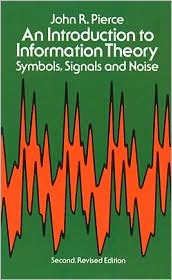

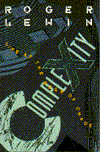

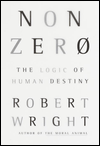

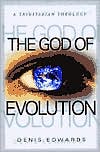

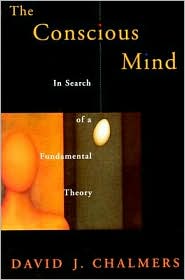
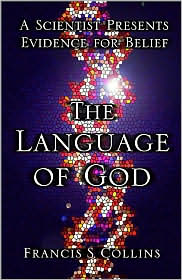


0 Comments:
Post a Comment
<< Home